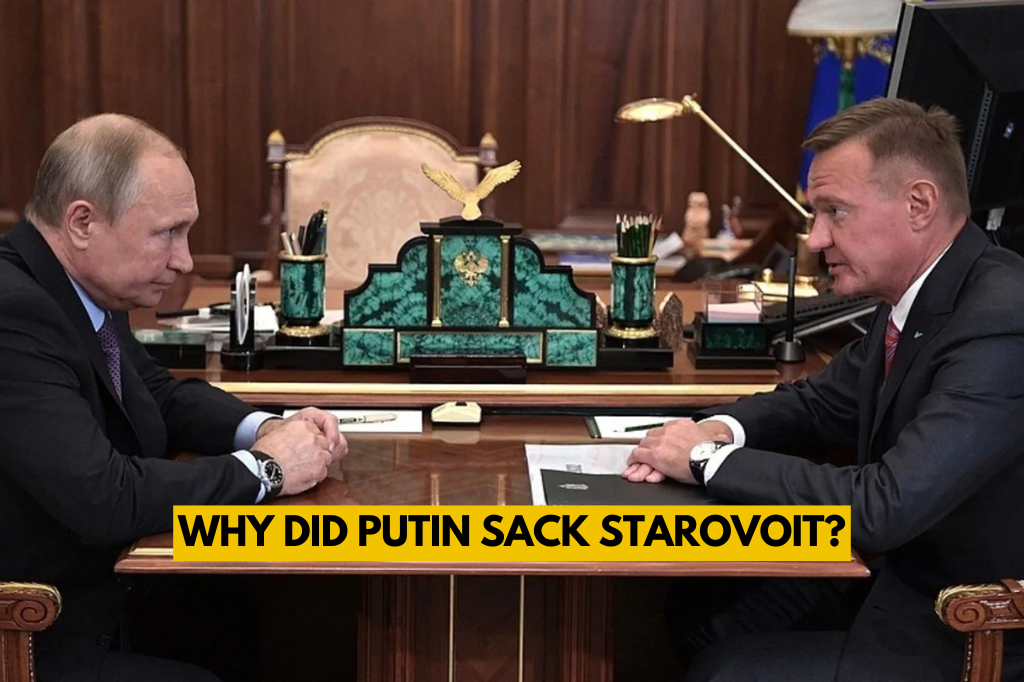Former Russian Transport Minister Roman Starovoit was found dead in his car near Moscow on July 7, just hours after President Vladimir Putin officially dismissed him from office. Authorities say a gunshot wound was the cause of death and believe he likely took his own life.
The 52-year-old was discovered in the upscale Odintsovo district, west of the capital. A pistol registered in his name was found next to his body, according to several Russian media reports citing law enforcement sources.
The Kremlin had earlier in the day released a decree, signed by Putin, confirming Starovoit’s removal from his post. News of his death surfaced shortly afterwards.
Career in Public Office
Starovoit had served as Russia’s transport minister since May 2024, having previously held the position of governor of the Kursk region for nearly five years. During his time as governor, he oversaw the construction of defensive infrastructure along the region’s border with Ukraine following the 2022 invasion. He was divorced and had two daughters.
Kursk Incursion and Fallout
His short tenure as transport minister was overshadowed by the fallout from a major Ukrainian military offensive. Just three months into the job, Ukrainian forces launched a large-scale cross-border attack into the Kursk region – the most significant foreign incursion into Russian territory since World War II.
In that assault, Ukrainian troops overran Russian border units and conscripts, capturing hundreds. The Russian military claimed to have fully retaken control of the region by April 2025, roughly nine months after the incursion began.
Corruption Allegations Surface
In April, Starovoit’s successor in Kursk, Alexei Smirnov – who had previously served as his deputy – was arrested and accused of embezzling funds meant for the region’s defence projects. Investigators are examining whether 19.4 billion roubles (more than Rs 2,000 crore) allocated in 2022 for building border fortifications were misappropriated.
On July 7, Russian media reported that Smirnov had implicated Starovoit during questioning, alleging his involvement in the suspected fraud. Some officials have speculated that the missing funds contributed to the Kursk region’s vulnerability during the Ukrainian offensive.
Dismissal with No Clear Explanation
Despite the serious allegations and high-profile military setback, the Kremlin has offered no direct explanation for Starovoit’s dismissal. When asked, spokesperson Dmitry Peskov said the firing was not due to a “loss of trust” – a phrase commonly used in Russia when officials are removed due to misconduct.
“A loss of trust is mentioned if there is a loss of trust. Such wording was not used [in the Kremlin decree],” Peskov told reporters.
However, multiple reports indicate that the decision to remove Starovoit had been made months earlier. According to Vedomosti – a Russian-language business daily newspaper published in Moscow – the Kremlin had been planning his exit for some time.
Death Raises Questions About Timing
In the hours following the announcement of his removal, Andrei Kartapolov, chair of the State Duma’s defence committee, told RTVI that Starovoit may have died “quite a while ago.” Russian media also speculated that his death might have occurred before the official publication of his dismissal.
A criminal investigation into his death has been opened, though authorities continue to treat it as a likely suicide, according to Svetlana Petrenko, spokesperson for the Investigative Committee – Russia’s main federal investigative body.
Acting Minister Appointed Amid Turmoil
Deputy Transport Minister Andrei Nikitin has been named acting minister following Starovoit’s death. His departure comes at a turbulent time for Russia’s transport sector. Over the past weekend, the Federal Air Transport Agency reported major flight disruptions across the country: 485 flights were cancelled, 88 diverted, and approximately 1,900 delayed.
The agency blamed the chaos on “external interference” but did not elaborate. Meanwhile, the Defence Ministry claimed to have intercepted over 400 long-range Ukrainian strikes – part of a sustained aerial campaign that has further strained Russia’s already troubled transportation network.







